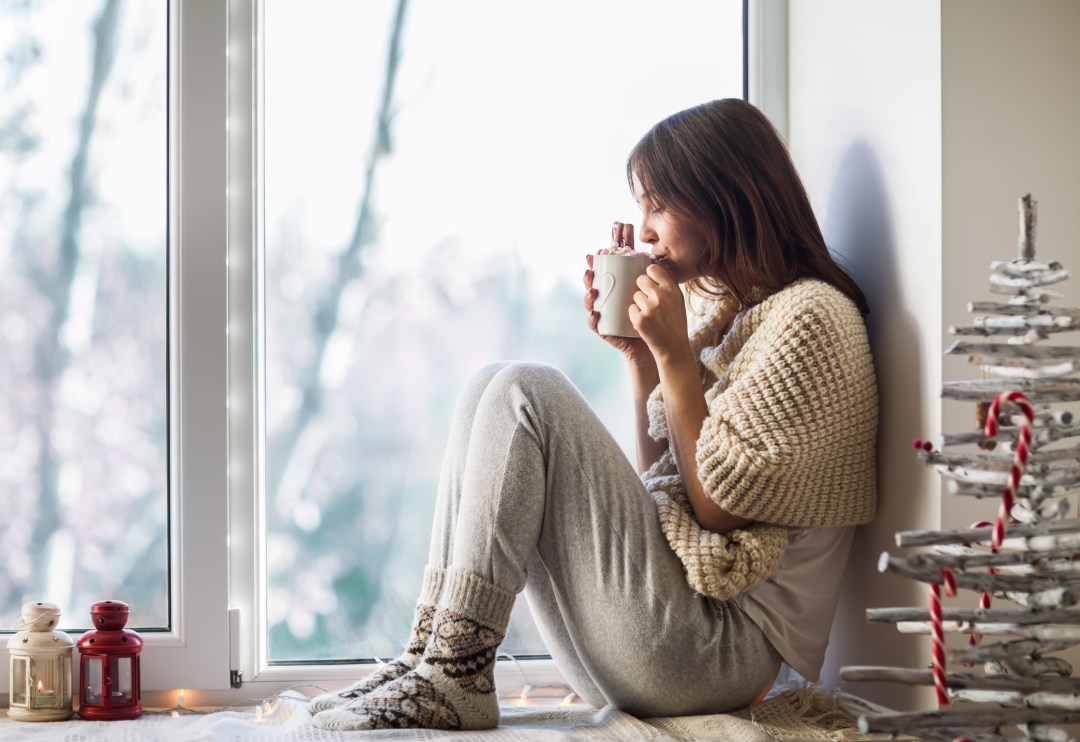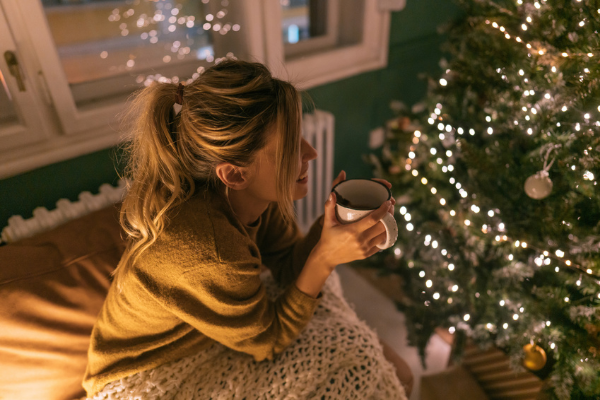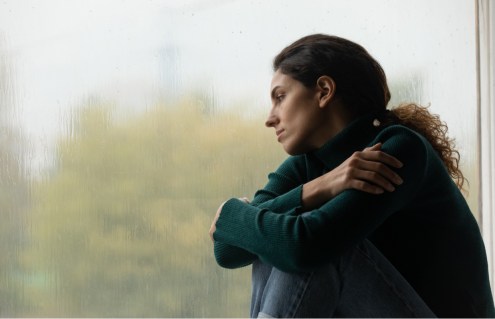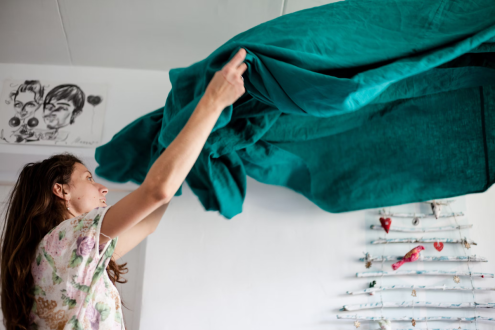The Christmas rituals we love
Prepare yourself – the festive season is here. Emma Cooling discovers why she can’t wait to get the tree up and settle down in front of Home Alone

From lighting my winter spice candle to making mincemeat to the sound of jingly Christmas tunes, I will not – indeed cannot – wait until mid-December to throw myself into my favourite festive rituals. Just as I did in 2020, I will be putting up the tree a little earlier this year and flicking on the Christmas films that bit sooner than usual. Forget the blase sophistication of waiting until a few days before Christmas for the fun to start or approaching with caution in case plans change abruptly – after the uncertainty we’ve all been through, I am itching to envelop my family in the comfort of our seasonal rituals as soon as possible.
‘Rituals are things we do that speak in the language of our heart and, therefore, connect us to what gives our lives deeper meaning,’ says Theresa Cheung, author of 21 Rituals To Change Your Life (Watkins, £8.99). ‘And, after the trauma of recent months, never has it been more important for us to connect with what truly matters in our lives.’
Cheung encourages us to embrace our annual rituals more than ever, make extra time for them and recognise their benefits: ‘This year, put up those decorations and ritualise what you are doing by understanding the reason why you are doing it. It’s about connecting with loved ones, doing something special and meaningful for yourself, cherishing memories of the joys of Christmas past and nurturing hopes for a better Christmas future. Festive rituals may seem utterly trivial right now, but they can bring comfort and optimism right when we need them most.’
The term ritual can be off-putting, with its connotations of smoke and incense and strange religious talismans. But by ritual, I simply mean a set of repeated behaviour that is familiar to me and that I perform in a certain way. Rituals are often part of tradition and the word is derived from the Latin word ‘ritualis’ which, while it often has religious associations, can refer to any collection of deliberate actions that form part of a process.
Throughout the tumultuous times of late, I have realised the incredible power of such small repeated actions.
Some are as simple as making myself a cup of tea (Earl Grey, served in my favourite folksy-style mug), leaving it to brew, savouring the first sip and allowing myself 10 minutes to stare into space while I drink it. These moments brought me a sense of control and calm when the world felt in flux, particularly during the trials of homeschooling. These little acts are symbolic of something far bigger – my cuppa represents me recognising that I need time out in the day, and giving myself permission to relax and recharge, if only for a short while.
Our Christmas rituals are similarly meaningful when you look at them more closely. They involve us coming together as a family or as a community, being thankful for all that we have, demonstrating love for those close to us and being mindful of those who have less, perhaps by reaching out to help others. Just thinking about my winter rituals brings feelings of warmth – festive traditions are like a lighthouse in the sea of a turbulent year, offering us safety, security and familiarity.
From putting up the tree, coming together for a festive feast and games nights with family and friends, most of us have at least a few rituals at this time of year. One of our special customs at home is the way we exchange gifts: we have a tradition where our children sit around the coffee table in the living room and give the gifts they have chosen for each other on Christmas Eve, instead of waiting until the big day. Already, I can feel that the anticipation of these moments is building, and there is much more chatter about these events than usual – this year, they seem to carry a much deeper meaning. And is it any wonder? After the chaos of the pandemic left us dizzy and disorientated, depriving us of established routines, now – at Christmas, a time of year heavily punctuated by traditions – we soak up the comfort and control that familiar, repeated sets of behaviour bring.
 Robbie Davis-Floyd, an expert in rituals and a professor of anthropology at Rice University in Texas, says that it is our need for stability that draws us to rituals. ‘During Christmas 2020, many people clung even more tightly to their seasonal rituals because the sense of stability and continuity they provided became much more important than usual in those uncertain times,’ explains Davis-Floyd. ‘The preservation of such stability is one of the major functions of ritual. Thus, we can expect that during Christmas 2021 the performance of seasonal rituals will again be intensified in order to give both children and adults the sense of security that they very much need during this ongoing period of social instability,’ she explains.
Robbie Davis-Floyd, an expert in rituals and a professor of anthropology at Rice University in Texas, says that it is our need for stability that draws us to rituals. ‘During Christmas 2020, many people clung even more tightly to their seasonal rituals because the sense of stability and continuity they provided became much more important than usual in those uncertain times,’ explains Davis-Floyd. ‘The preservation of such stability is one of the major functions of ritual. Thus, we can expect that during Christmas 2021 the performance of seasonal rituals will again be intensified in order to give both children and adults the sense of security that they very much need during this ongoing period of social instability,’ she explains.
‘Even if Covid-19 becomes a non-issue by the holidays (which, of course, is highly unlikely), people will still cling to their seasonal rituals, both in celebration of the pandemic’s end and out of a desire to get things back to normal.’
Rituals relight memories of happy times and it is those recollections that steady us in periods of uncertainty. For Phoebe Garnsworthy, author of Daily Rituals (£5.50), the key to success is in their repetition: ‘We turn to rituals for inner strength and comfort. Our rituals have the ability to provide us with confidence in ourselves and faith in what may be, igniting a happy memory that we know will deliver the love and care that we seek,’ says Garnsworthy. ‘This positive emotion continues to build in power with each repetition and therefore, over time, we establish our own harmonious environment through doing so.’
Even those rituals I thought my children had outgrown seem to be creating a buzz this year – our tradition of buying a chocolate lollipop from the farm shop where we get our tree is definitely still on my 13-year-old’s festive agenda.
In her upcoming book, Ritual: What It Is, How It Works, And Why (Berghahn, £27.95), Davis-Floyd acknowledges that the traditions surrounding Father Christmas’s visit, which for most families involves the hanging up of stockings and leaving treats for Santa and his reindeer, create feelings of awe and wonder, whatever your age. ‘Parents who continue to live inside that myth with their children find a magical reinstation of their own childhood Christmas rituals as they work to make their children’s beliefs in the magic of Christmas come true once again,’ says Davis-Floyd.
So perhaps you will want to get out the milk and cookies for Santa one more time, embrace the sentimentality of old rituals, revive traditions and relish those festive moments alone – as pockets of calm and reflection when you need to recharge. Who knows what the season will hold, but our simple rituals, many of which take place in our homes, can bring us comfort and plenty of joy.
Photographs: Getty Images








